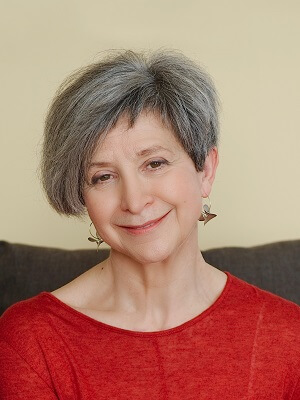Who I am – Maddalena Fanti
Psychopractitioner : Psychosomatic therapy, Therapeutic hypnosis, Clinical EFT
My career
I’ve always been fascinated by how the brain works and by the powers of the mind. Before putting this fascination at the heart of my professional practice, I worked for many years in corporate Human Resources Management, helping people to develop their career paths. In this role it was very difficult to establish one-to-one relationships. People were suspicious. I wanted to get out of the box and make people feel that I was there for them.
I therefore went back to school and trained in various therapeutic approaches, most of them psychosomatic. This term, which comes from the Greek words psyche (soul, spirit) and soma (body), links emotional and physical pain. The body, like the mind, is imbued with our sensations, memories and traumas, and reacts in a physical way. For example, when faced with strong emotions such as stress or anxiety, it produces cortisol and adrenaline, which increase our heart rate, makes our palms sweat and our muscles tense. By exploring the root causes of physical pain and illness in a holistic way, we can treat and release buried trauma.
My specialisations Psychopratician Uccle
EMTE
EMTE body-psychotherapy combines massage, energy therapy and psychological and spiritual support. This approach addresses the different dimensions of our being – physical, emotional, mental and spiritual. The aim of the massage is to relieve physical tension and the related emotional blockages. Energy work aims to harmonise energy centres, using intention, visualisation and the healing power of the hands. Psychological support combines different approaches: systemic, humanistic psychotherapy, the Wilhelm Reich approach and Jungian psychoanalysis. Spiritual work is done mainly with mindfulness.
My training:
ATMARM School – Brussels
Therapeutic hypnosis
Hypnosis is a modified state of consciousness which, by activating certain brain regions and reducing the activity of others, creates an inner bubble and focuses attention on internal sensations. Using the help of hypnotic protection within this bubble, we can work on traumas and desensitise painful content and memories. By ‘reliving’ them in a safe environment, we can ‘digest’ them and put an end to processes that poison our existence.
My training:
- Strategic Conversational Hypnosis PTR (Reassociative Trauma Psychotherapy) at the IMHEB Institute (Milton Erickson Institute of Belgium);
- New Ericksonian Hypnosis and Psychotherapy at AFNH (Association Française de Nouvelle Hypnose).
Clinical EFT
Clinical EFT (Emotional Freedom Technique) is a method of managing emotions that combines Cognitive Behavioural Therapy and acupuncture. It involves stimulating certain energy points on the body (the acupuncture meridians) while focusing on the problem you wish to treat (psychology). By stimulating the corresponding acupressure points, we send a relaxation signal to the brain and body, which brings calm and desensitises traumatic memories. Ideal for managing stress and strong emotions, Clinical EFT is also effective for supporting people who have suffered serious trauma and for dealing with older, more deep-rooted issues.
My training:
Master Practitioner in Clinical EFT and Energy Psychology from IFPEC (Institut Francophone de Psychothérapie Emotionnelle et Cognitive). My training programme included the latest discoveries, such as Stephen Porges’ Polyvagal Theory, Attachment Theories, REM (Memory Reconsolidation) and the foundations of the IFS (Internal Family System).
My practice
I opened my practice in Uccle 10 years ago and work there every day with dedication. Although my tools and techniques are supports I use according to a person’s problems and objectives, the heart of my practice lies in building a therapeutic relationship. As a therapist, I help you to discover the solutions that lie within you. My approach as a psychotherapist is also informed by my own personal experience, and by questions about the meaning of our existence. That’s how, some twenty years ago, I ‘discovered’ the therapeutic power of meditation after a major bereavement Meditation has become a daily practice, a time when I get in touch with my inner calm. I can help you train your mind and heart to achieve inner stability, a little calm amid the fluctuations of the day.
Who is it for? Why?
My caring, non-judgemental approach, which is particularly sensitive to certain issues that echo my own personal experience, can help you in the following situations:
- Major upheavals in your life: bereavement, separation, redundancy, post-traumatic stress, etc.
- Personal development: learning to manage stress and anxiety, dealing with self-image issues, developing self-esteem and self-confidence, managing emotions, overcoming limiting beliefs, etc.
- Relationships with the body: eating disorders, weight management, chronic pain, etc.
I work with adults and teenagers. Consultations take place either at my office or by videoconference (Skype, Zoom, etc.). My sessions can be conducted in French, English or Italian.
